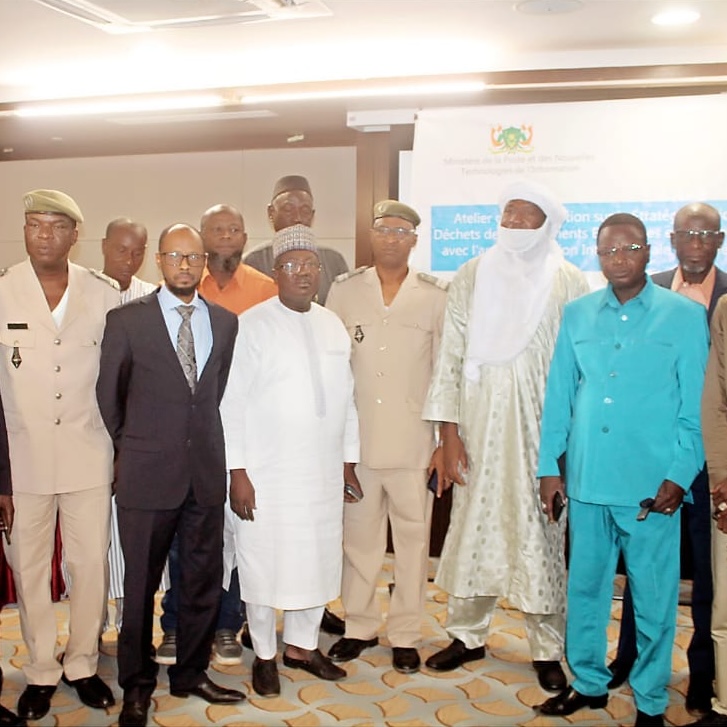Country StatusIn 2022, Niger generated 14 million kilograms of e-waste, with a per capita generation of 0,5 kilogram. Although the rates of e-waste generation in Niger are not at the levels seen in neighbouring Western African countries, Niger currently lacks an official management system, an adequate regulatory framework, and collection networks. The sharp rise in e-waste flows that has been observed in other countries also raises the possibility that Niger will experience a same trend. Moreover, digital transformation in the country is likely to lead to an increase in the among of discarded devices in the future. As a result, an e-waste management strategy was deemed necessary. This strategy aims at strengthening the regulatory and legal framework for a sustainable management of e-waste, to establish the necessary infrastructure and sustainable resource access, to promote research and establish a monitoring and evaluation mechanism, and to build capacity and collective awareness of the e-waste challenge.
- E-waste Generated (million kg): 14
- E-waste Generated (kg per capita): 0,5
- E-waste Documented as Formally Collected and Recycled: N/A
- E-waste Policy, Legislation or Regulation: No
- EPR on E-waste: No
- Collection target in place: No
- Recycling target in place: No

| 
|
ITU and E-waste in Niger
ITU has been providing support to the the Ministère de la Poste et des Nouvelles Technologies de l'Information to develop a national e-waste strategy. The strategy will be Niger's first comprehensive document focused on e-waste management. Like many other countries dealing with the e-waste challenge, Niger lacks a formal e-waste collection, transportation, and disposal system. The strategy aims to create a future regulatory framework, reduce the volume of e-waste requiring disposal, and adopt environmentally sound practices for the final disposal of e-waste.
- ITU – GIZ GovStack (2022 – 2023)
In the context of the ongoing GovStack initiative and in collaboration with GIZ, ITU supported the Ministère de la Poste et des Nouvelles Technologies de l'Information to create a national e-waste strategy. To kickstart the strategy development, a first public and private sector stakeholder consultation workshop was held near the end of 2022. A preliminary version of La Stratégie Nationale de Gestion des Déchets D'équipements Électriques et Électroniques was drafted, approved in March 2023, and is awaiting ministerial approval.